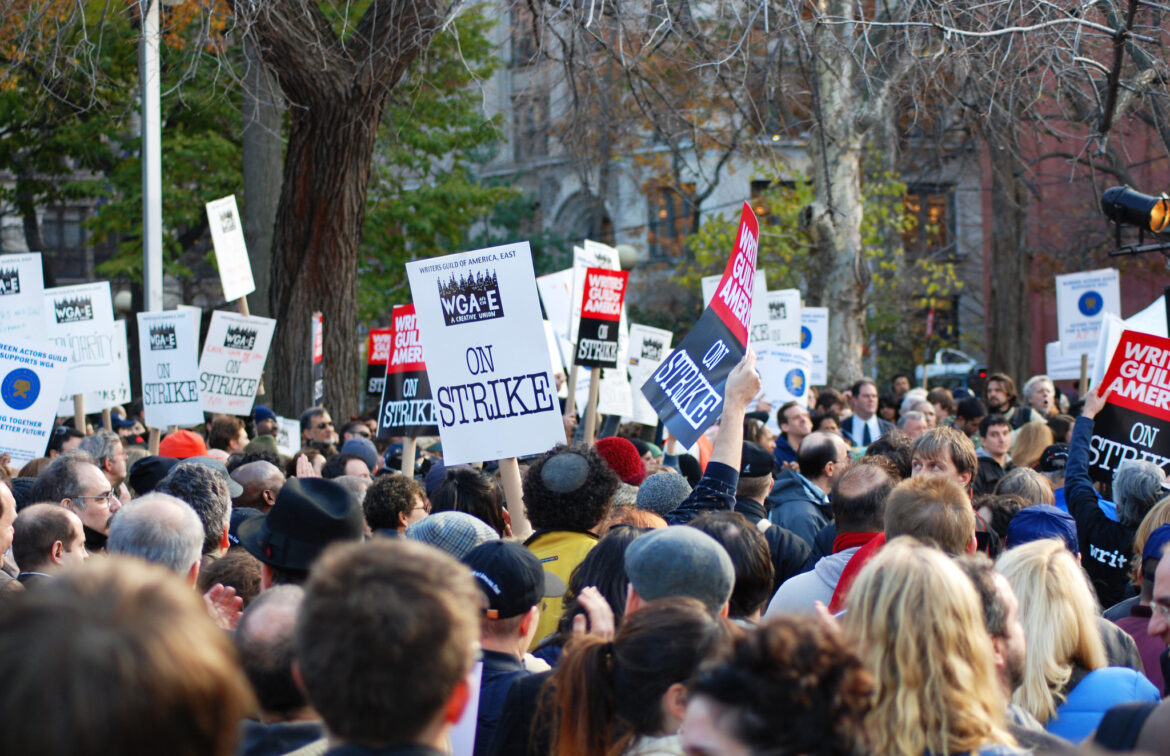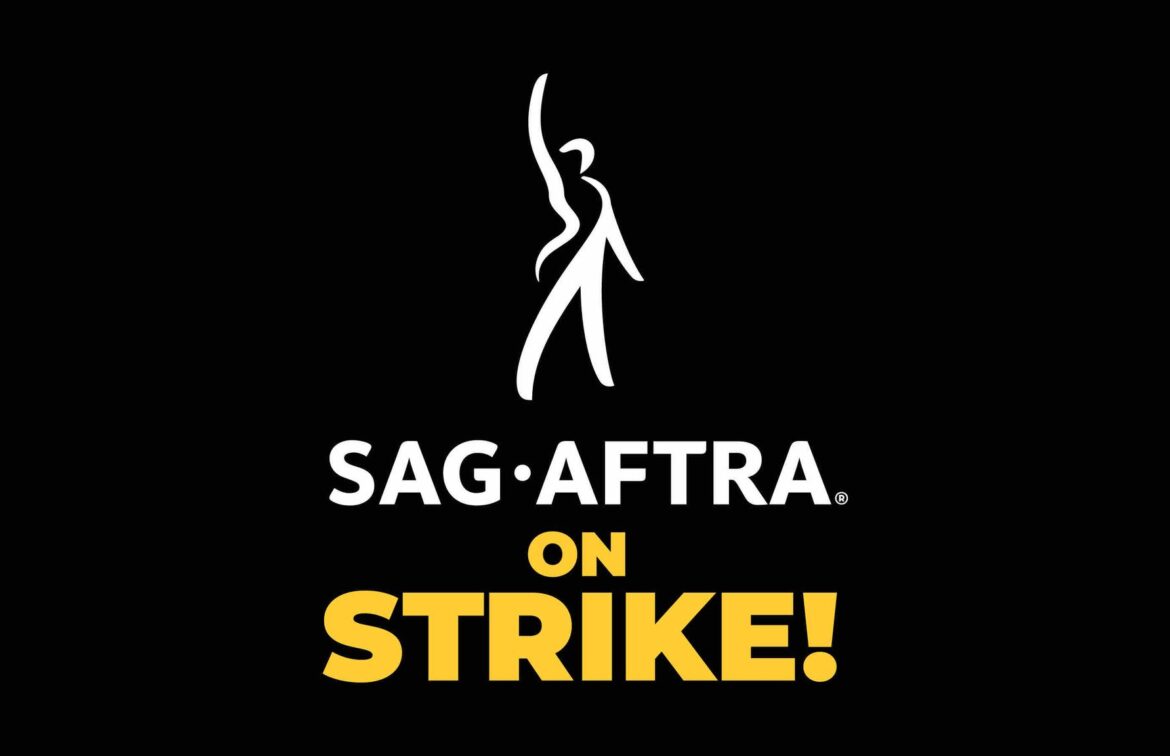“Writer’s Guild of America East Soladarity Rally in Washington Square” by John Edwards 2008 is licensed under CC BY-SA 2.0.
As of this writing, with no deal made, the Writers Guild of America have gone on strike. First I’ll discuss why they are striking, what they are hoping to get out of these agreements, and then I’ll talk about what this may mean for you as a consumer of entertainment.
Why Did the Writers Strike in 2007?
The last time the WGA struck was in 2007 to 2008, when the unions went on strike to protest for higher wages for writers. This was led in part due to the changing media market, and writers were fighting to get paid increased residuals, historically payment when an old episode of a TV show for instance airs, to keep up with the evolution of DVDs and to predict the issues with the Internet.
Why Are Writers Striking Now?
Though the contract negotiations did help the WGA improve the writers’ standing overall, as a contract was eventually agreed upon, the speed and rate of change has increased as such that the WGA deems it necessary to revisit many of these issues again as streamers dominate and residual pay remains, or in some cases has dropped, to new lows.
Writers are also increasingly concerned about the development of AI-generated content, which much like before could be the danger ahead that, though not presently, may impact future strikes even more than the one at present.
What Are Writers Demands in the 2023 Writers’ Strike?
Here are a few of the demands the WGA is striking for:
-
Living Wage
Streaming series do not have the same amount of reruns or replays as traditional TV series, therefore residual checks can be incredibly low. Writers in the past could maintain a living between series pick-ups thanks in part to these residuals; however, now they are routinely needing to be concerned when a project ends that they need to have another one lined up immediately.
-
Limit AI
As previously mentioned, writers are concerned about AI created content, and thus the WGA’s demands include a demand to “regulate use of material produced using artificial intelligence or similar technologies”
-
Pension and Health Insurance
In addition to the increase in wages, and residual pay, the WGA is also concerned about upping the pension and health funds for their writers.
Why Does the Writers Strike Matter?
Though the writers strike will mostly impact consumers in what they watch (or cannot watch), the WGA strike is also likely to be the first in a series of major contract negotiations between unions in the entertainment industries and the publication companies, studios, and content distributors.
There are guilds that represent many different workers in the entertainment industry, and the success, or failure, of the WGA to strike and potentially improve their contracts may demonstrate to other unions what to do and not to do with their contract negotiations. In particular, the evolution of streaming and AI could potentially impact nearly every union in the entertainment industry, so they’ll be closely watching these issues in particular.
How Will the Writers Strike Impact My TV, Movies, and Viewing Habits?

Contract negotiations are held every year, and thus there was some expectation of a potential strike months out. To prepare studios and production companies tried to get as many scripts written ahead of time, to limit the impact on presently running programs. However, shows such as Late Night with Seth Meyers, who himself has spoken on the Writer’s Strike in support of the negotiations, the Daily Show, The Tonight Show with Jimmy Fallon, and others, will be impacted immediately as their shows are written each day. Broadcast and Internet series may not be impacted as immediately; however, there is a chance that much like the writer’s strike in 2007 our TV landscape could be impacted for better or worse, as occurred with shows such as Scrubs, Breaking Bad, and others.








